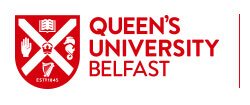By Louise Taylor, PhD student in Politics
When I think about COVID and the past year, I think of humanity being put on the naughty step. I envisage mother earth, Gaia or whoever you associate with the planet as sending us all to our rooms. We have been asked (on several occasions now) to go home and think about what we have done. I realise most people won’t think like that, but I enjoy this little fantasy. This image tickles me. The idea that all of this may be punitive makes sense to me. The reason I see it that way is because I am a little disappointed with my species, I am an environmentalist. And hence why I think a few restrictions and being shaken up out of our consumerist slumber would do us no harm.
Whilst the naughty step analogy is my light hearted way of interpreting and analysing events through an ecocritical lens, I am aware this playfulness could be considered insensitive. However, humour has always been a powerful and quite healthy coping and defense mechanism. COVID is a horror and what it has done to many is tragic.
Tragedies and catastrophes change people, they change society, they change collective behaviour. A pandemic has shaped the world and dominated events and whilst I am aware that change is inevitable; rapid, global change is alarming. Change at an accelerated and often uncomfortable rate can devastate and destroy. For many the discomfort has been regarding the uncertainty and the element of not having any control. For me the comfort has been in the uncertainty and the element of not having any control. The truth is I enjoy change, I actually embrace it and most certainly do not fear it.
My year, both on and off the naughty step, has been used to do what you are supposed to do whilst sat on it. I have used these experiences to reflect and think and to try and be a better person. As a third year PhD student, thinking is certainly not alien to me, but really thinking about my life and my choices was unavoidable and it pushed me to dig deep and be better.
I did many things during this past year as a result of COVID. I rekindled my relationship with my children’s father by taking responsibility and swallowing a lot of pride. I moved school to HAPP to complete my PhD whilst staying true to my beliefs and my academic preferences. And I went to a Psychologist and got assessed for Autism/ ASD and finally received a diagnosis in my forties. None of these things were easy, all of these things have helped me move closer to reaching my potential and living a life I feel content with. Would these things have happened without COVID? I very much doubt it.
The truth is pre-COVID I was busy, stressed and getting everything done. I was on the conveyor belt. Children, career, write thesis, go out, avoid discomfort, exist. COVID put the brakes on that life and forced things to slow and to change. COVID changed the world and COVID changed me. It was up to me how COVID was going to do that and I’m grateful for the lessons and the enforced reflection. I needed it, I think the world did too.
